'I don't fear dying, I fear not living well'
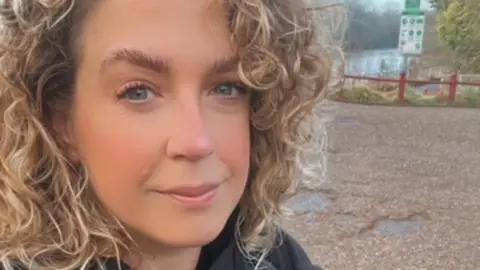 Meg Lewis
Meg LewisMeg Lewis does not fear dying.
The 35-year-old former NHS healthcare support worker surrounds herself with things she loves, in full anticipation that her progressive, incurable lung condition will one day take some of them away.
She knows she will probably need a transplant in the future and admits her "mortality was at the forefront of my mind" when she was diagnosed.
But as someone who "excelled at end-of-life care" after supporting "hundreds of wonderful patients", the greatest fear she has is "not living well before death finds me".
Meg was diagnosed with hypersensitivity pneumonitis - when the immune system overreacts to inhaled substances, causing inflammation in the lungs - in 2022.
Speaking on BBC Radio Wales' Saying Yes to Life, where presenter and actress Shalisha James-Davis explores how people cope with a life-changing diagnosis, she described breathlessness that almost felt "like you're suffocating".
With anything able to affect her lung function, Meg has to cover her mouth when breathing to warm the air up to try and stave off a cough.
Being diagnosed with this life-limiting condition also exposed her to a feeling of grief.
"It lifts a curtain on a world you really wish you did not see. I miss making decisions without having to think of the worst-case scenario.
"And I hate having to make decisions where I'm working out what to do now because I might not be able to do it in the future.
"It does almost kill off a part of you."
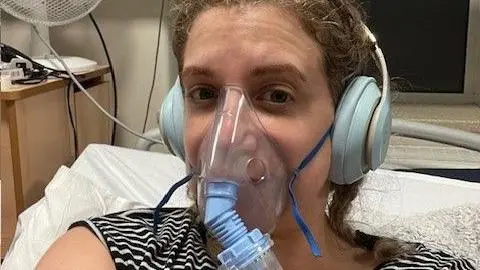 Meg Lewis
Meg LewisAs a pragmatic person, she has found ways to cope.
"If my life's going to be short, I don't want to cry all the time," she said.
Instead, she is taking a "speed dating" approach to hobbies and interests "to see what sticks" and has established what has been dubbed "the lung club", with regular walks to help fellow patients stay as active as possible.
"You should surround yourself with so many things you love and love doing because, as the disease inevitably does start to take things away from you, you've still got lots of things you love to dampen that grief and the loss.
"That's the mindset I have and I try not to get too hung up on the things I can't do any more and focus on what I can do, and walking is one of them."
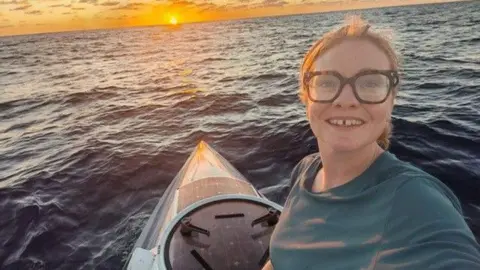 Sophie Pierce
Sophie PierceSophie Pierce, 32, from Neyland, Pembrokeshire, has also come to appreciate the opportunities good health allows her, "because that's not always been a given".
When she was diagnosed with cystic fibrosis as a baby, her parents were told life expectancy was typically about 30.
"When I have felt well, I've said I want to use this time as best I can and I want to live my life because my time isn't guaranteed."
She reached a turning point in her mid 20s during her first big decline in health, which forced her to take stock.
"I used to feel anger rise in me if anybody ever said anything negative about my life with cystic fibrosis. So the only way I could cope with it was being positive.
"It was like toxic positivity."
A series of panic attacks prompted her to seek help from a psychologist, which she described as "the best thing I ever did".
"I was so frightened of feeling sadness because I thought that if I felt the sadness, it would never go and that would just eat me up.
"So what I learned by going through that process is that I needed to feel all the feelings. And those feelings would ebb and flow - they would never stick."
Since then, Sophie said her panic attacks stopped.
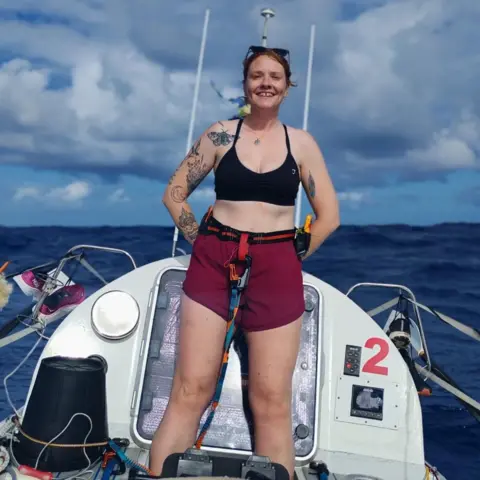 Sophie Pierce
Sophie PierceShe also found another coping tool.
"When I discovered the outdoors and physically pushing myself it made me think about all the things my body could do and that felt incredibly empowering and it felt good."
Last week she became the first person with cystic fibrosis to row the Atlantic Ocean.
"I felt strong and I felt resilient and I feel able to face the challenges. There will be a day when I can't do this, but today is not that day, so let's do it."
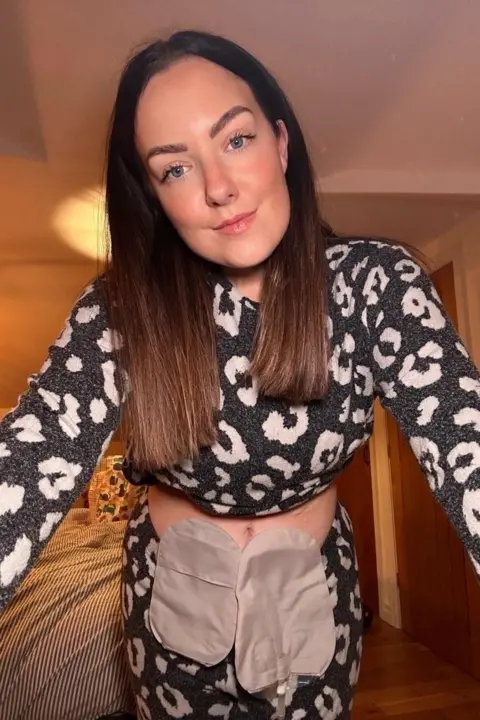 Anna Cooper
Anna CooperAnna Cooper, 31, from Wrexham, spoke to the programme about her diagnosis of endometriosis at the age of 18 and living with two stomas.
She has had 19 surgeries since then and, in the past year, has endured several bouts of sepsis.
Despite this, she co-founded Menstrual Health Project, which advocates for women and works in schools to update menstrual health education.
She told Shalisha she craved "stability in my health so I can go a year without needing surgery" but supporting others "gives me a lot of strength to be able to give back".
"If I don't keep going things are going to get worse and I'm going to be bed bound – for me, I have to keep showing up."
One thing is essential - being kind to herself.
"Whether you've got outside or even out of bed, or watched your favourite film – it's seeing the positive in every day."
